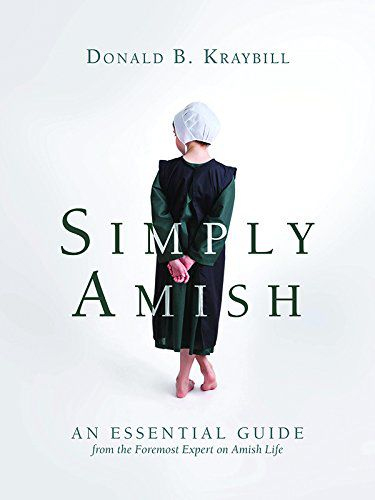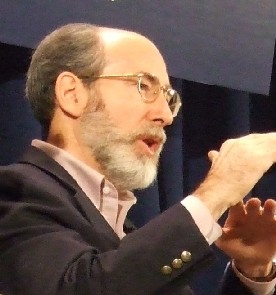Donald Kraybill, who is undoubtedly the leading authority on Amish life, has just written another book on his favorite subject. Last week, LancasterOnline reviewed his new work, Simply Amish, which was published by Herald Press on June 26.
 It is a popularly-written, slender book of only 64 pages that is designed to answer questions about the Amish posed by visitors to Lancaster County, Pennsylvania—as well as those asked by the local “English.” Kraybill has retired from his teaching position at Elizabethtown College in the county but he still has the title Senior Fellow Emeritus at the Young Center for Anabaptist and Pietist Studies on the campus. “I have a lot of neighbors here in Elizabethtown who ask me a lot of interesting questions about the Amish that they really don’t know,” Kraybill tells LancasterOnline. So he designed his latest book to answer those questions.
It is a popularly-written, slender book of only 64 pages that is designed to answer questions about the Amish posed by visitors to Lancaster County, Pennsylvania—as well as those asked by the local “English.” Kraybill has retired from his teaching position at Elizabethtown College in the county but he still has the title Senior Fellow Emeritus at the Young Center for Anabaptist and Pietist Studies on the campus. “I have a lot of neighbors here in Elizabethtown who ask me a lot of interesting questions about the Amish that they really don’t know,” Kraybill tells LancasterOnline. So he designed his latest book to answer those questions.
One of the major topics of the book is the fact that the different dimensions of Amish life tend to be integrated into their religious life. In contrast, life for modern people in Lancaster County is specialized. Kraybill explains that non-Amish modern individuals have their families, their work, their community, their athletics, and so on. The Amish have their church. “You have this much stronger sense of integration of all of the dimensions of life in the Amish community,” he adds.

Quoting Karen Johnson-Weiner, another Elizabethtown professor and also an authority on the Amish, Kraybill concludes that the “Amish people are always in church.” But he says that avoiding automobiles and continuing to emphasize their horse and buggy culture remains the defining characteristic of membership in Amish society. However, he says, the colors of the buggies vary—the ones in Lancaster County are gray while those in Holmes County, Ohio, are black.
Despite the fact that he has retired, Kraybill keeps busy. He edits the works of other scholars, continues doing research, and is assembling his papers for the Elizabethtown College archives. He expresses pleasure that he now can attended meetings and lectures if he feels like it. He says it is a privilege and a nice bonus of being retired, a sentiment that any academic can easily understand.